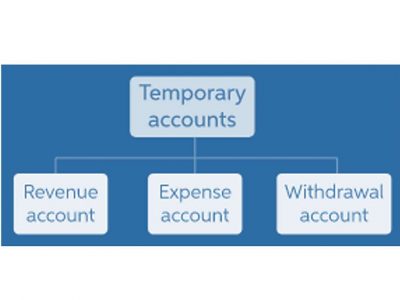
B-corps undergo rigorous assessments to demonstrate their dedication to social and environmental goals, achieving certification by meeting high standards of transparency, accountability, and performance. To avoid having to set up a corporation in person, simply fill out this form to apply for a corporation online right now. If the old adage “the only things certain in life are death and taxes” is true, it’s especially true in the business world—at least when it comes to taxes. Corporations may also qualify for other tax deductions, credits, or incentives aimed at encouraging business investments and growth.

Font Type
- Additionally, corporations can offer tax-free benefits like pension plans and insurance, further reducing taxable income and increasing their overall profitability.
- The governance of a corporation is shared between its board of directors, officers, and shareholders, which means that small business owners may lose a certain degree of control over the company.
- However, if you expect to generate profits in year one, this might not be a problem.
- Unlike these simpler business structures, corporations cannot directly pass business income to the owners’ personal tax returns without triggering corporate tax obligations.
- Additionally, LLCs face fewer legal formalities and record-keeping requirements, making them an attractive option for small to medium-sized businesses seeking simplicity and protection.
- The type of legal structure you eventually decide to use for your company can play a significant role in the success or failure of this venture.
Corporations are generally governed by a QuickBooks board of directors elected by the shareholders. A corporation is a legal entity whose investors purchase shares of stock as evidence of their ownership interest in it. A corporation has most of the rights and obligations of an individual, such as being able to enter into contracts, hire employees, own assets, incur obligations, and pay taxes. The interests of shareholders are represented by a board of directors, which they elect.
Corporation advantages and disadvantages
With the Tax Reform Act of 1986, the S Corporation became a highly desirable entity for corporate tax corporation advantages and disadvantages purposes. It is a special tax designation applied for and granted by the IRS to corporations that have already been formed. There are a few minor, but significant, differences between general corporations and close corporations. In most states where they are recognized, close corporations are limited to 30 to 50 stockholders. In addition, many close corporation statutes require that the directors of a close corporation must first offer the shares to existing stockholders before selling to new shareholders. But when you incorporate your business, you’re effectively signing an agreement stating shareholders can’t be held personally liable for any financial or legal judgments relating to the business.

Corporation Pros and Cons: Everything You Need to Know
There could be a lack of interest in the market or a disagreement over its value that could lead to problems with the completion of a transaction. Owners can decide to quit a corporation, but that doesn’t mean the company is going to dissolve immediately. A sole proprietor can decide instantly to stop working and that immediately closes everything. When the agency is a B, C, or S-corporation, then a resolution to dissolve must come through the leadership structure. This document must go to the jurisdiction that governs the region to indicate that no business activities will occur in the future.
Types of Corporations and Their Advantages & Disadvantages
- This also allows a shareholder to disconnect from the corporation by selling all of her shares without ending the corporation.
- There are usually several forms required for operating a corporation and these forms must be filed on an ongoing basis.
- A corporation is a legal entity that is separate from its owners (also known as shareholders).
- S Corporations avoid this “double taxation” (once at the corporate level and again at the personal level) because all income or loss is reported only once on the personal tax returns of the shareholders.
- To form a C Corp, owners must agree to hold annual shareholder meetings and take notes on them.
- A C Corporation (C-corp) is a legal entity that allows for an unlimited number of shareholders, providing flexibility in ownership.
This is because corporations must comply with stricter rules as compared to other types of businesses. Similarly, there are several different stages that the initial owners of a corporation must go through to form a corporation. When shareholders buy or sell their shares, the operations of corporations are not affected by these transfers.

Why Microsoft is letting go of staff across multiple levels
Additionally, certain types of corporations, such as S corporations, allow profits to pass through to shareholders, potentially avoiding double taxation while still maintaining the benefits of Certified Bookkeeper incorporation. When a corporation pays dividends to its shareholders, the company is not allowed to deduct these payments from its income. Before discussing the advantages and disadvantages of a corporation, we must first understand what makes up a corporation.
The limited liability and ease of raising capital make corporations an attractive option for many business owners, especially those seeking long-term growth. Ultimately, the decision to incorporate hinges on whether the advantages align with your business objectives and if you are prepared to manage the disadvantages. For many small businesses, the benefits of limited liability, access to capital, and enhanced credibility outweigh the challenges, making a corporation a compelling type of business structure to consider. A corporation’s formal business structure and stability can make it a more appealing employer for top talent.
When investors make money through dividends (a distribution of corporate profits to owners) or through capital gains (an increase in the value of a share of stock) these are taxable. The current tax code taxes dividend income and long-term capital gains at a lower rate than ordinary income which substantially reduces (but does not eliminate) the impact of double-taxation. Given the volatile nature of tax codes, the impact of double-taxation is likely to fluctuate over time. One of the biggest disadvantages of a corporation (C corp) is the double taxation implication. If you operate a C corporation, your company will have to pay corporate income taxes.

Characteristics of Sole Proprietorships, Partnerships & Corporations
This structure helps to make the company operate as efficiently as possible. Additionally, there are legal requirements and annual documentation that must be submitted. Because there are many government agencies that monitor corporations, fulfilling the paperwork necessary to meet all requirements can be cumbersome.









